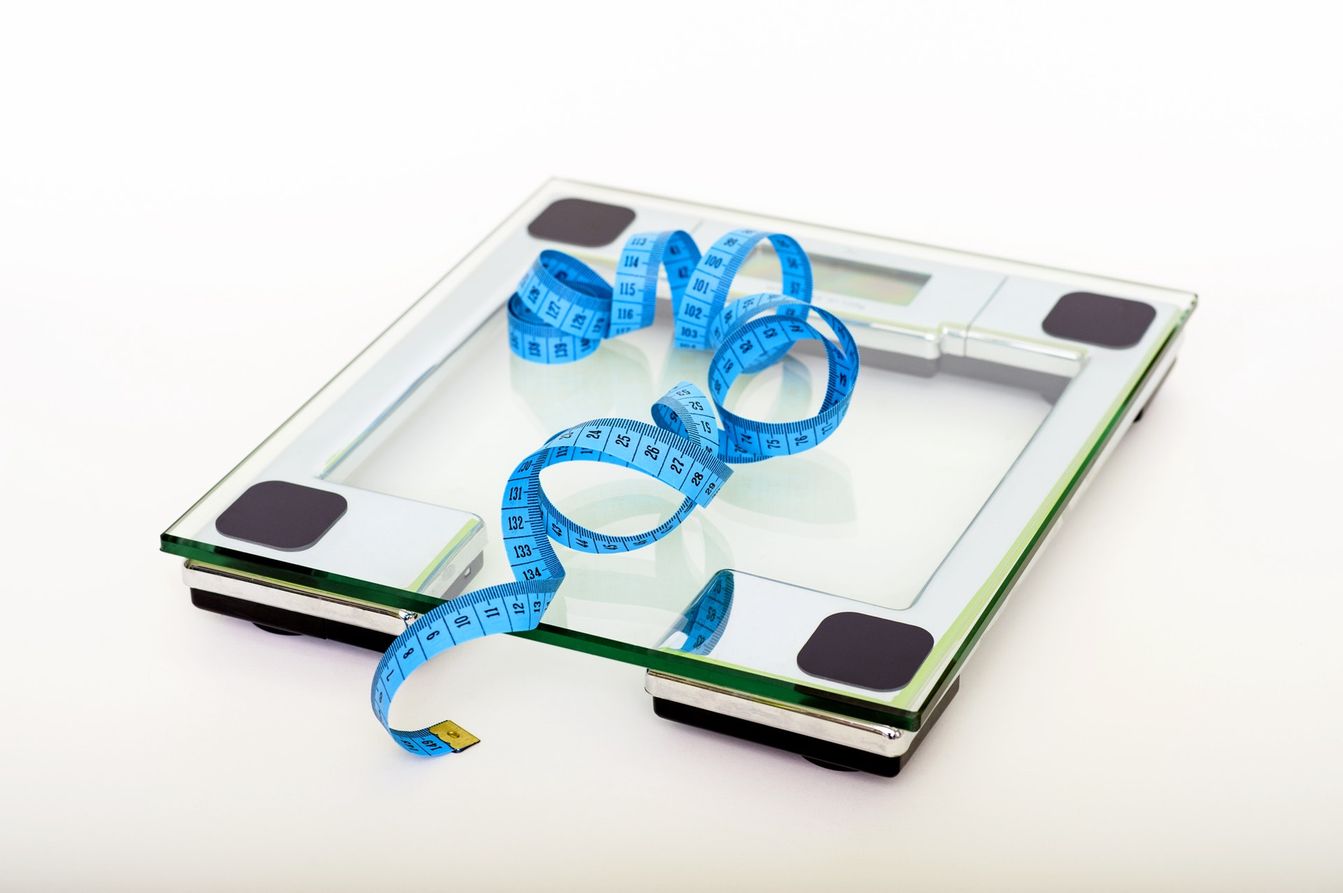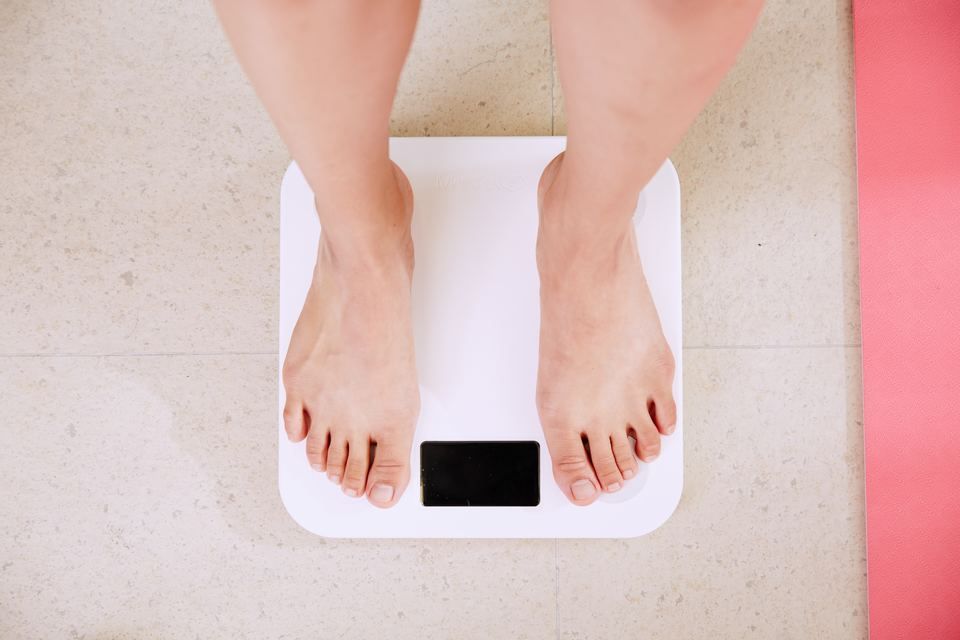You know you should lose some weight. In fact, you want to lose all that weight you gained when you were pregnant. But how do you do that when you’ve got a baby to feed, a house to clean and precious, precious sleep to catch up on?
Turns out you’re not alone.
A study by the University of South Australia has discovered that it’s not that we don’t know what we have to do—eat well, start exercising, maintain a healthy weight—it’s just that we find it incredibly difficult to prioritise weight loss over everything else we need to do.
“This research shows that despite women being well informed about the right foods to eat and the need to exercise (including the range of diet and exercise programs and trackers), women identify their primary barrier to weight loss as ‘family responsibilities’, with 62 per cent prioritising this over their personal health,” says UniSA lead researcher and PhD candidate Kristy Gray.
This is especially poignant for those of us who were diagnosed with gestational diabetes.
“Women who have been diagnosed with gestational diabetes have seven times the risk of developing type 2 diabetes, making them one of the most at-risk groups. Weight loss and healthy eating can significantly reduce the risk of developing type 2 diabetes, but losing weight after pregnancy can be challenging, especially with the demands of motherhood,” says Kristy.
Healthy eating tips: What a dietitian says about postpartum weight loss

“Two-thirds of the women interviewed said that individual appointments with a dietitian or nutritionist would help them to lose weight, but unfortunately, these appointments are not affordable for everyone,” Kristy says.
As a busy mum of three children, Amanda Muhl, Mums At The Table’s resident accredited practising dietitian, understands the struggle extremely well. And she has some simple ways to help you lose your pregnancy weight through food:
- If you are able to, breastfeed your baby for as long as possible.
- Aim for two serves of fruit and five serves of vegetables each day.
- Choose wholegrain breads, cereals and grains.
- Choose reduced-fat dairy products. This is an easy way to reduce kilojoules.
- Reach for a healthy snack such as a piece of fruit, a small tub of low-fat yoghurt, a glass of low-fat milk, a small handful of nuts or veggie sticks and hummus.
- Fill up on veggies. Aim to fill half your plate with salad or vegetables at lunch and dinner.
- Try to include plant sources of protein in your diet daily. These include legumes, tofu, nuts and seeds.
- Drink lots of water.
- Be mindful of your portion sizes and stop eating when you are full.
- Fill your fridge and cupboard with healthy and fresh foods. It is much easier to avoid foods high in fat, sugar and salt when they are not easily available.
“There is a lot of pressure on mums to lose the pregnancy weight soon after birth, but what’s more important in these early stages is to stay healthy and active while you bond with your baby and adjust to changes in your lifestyle,” says Trish Guy, a nutritionist with Sanitarium Health & Wellbeing.
Like Amanda, Trish doesn’t suggest a particular diet to help you lose all the weight gained during pregnancy, but to focus on the five core food groups instead, such as:
- Wholegrain foods
- Vegetables
- Fruit
- Reduced-fat dairy and dairy-free alternatives
- Protein foods such as legumes, eggs and nuts.
“This will ensure that you are getting adequate nutrition, keeping your energy levels up, building strength and supporting your mood, all with the added side-effect of losing some of that unwanted weight without even thinking about it,” says Trish.
She also recommends preparing healthy meals in bulk and freezing portions for a quick meal later on. In the early weeks after giving birth, to save time and make it easier to eat healthy, she suggests considering ordering meal kits or having your groceries delivered.
In a nutshell: Avoid processed foods and eat as natural as possible. The way God made our food is as good as it gets!
Finding the time to exercise

Research shows exercise is also good for our minds and thinking skills. While professionals tell us to aim to exercise for 30 minutes, five days a week (after you’ve been cleared by your doctor), that number can sound unattainable with everything else that we have to do.
Amanda has some solutions, starting with breaking it down into 10 minutes of physical activity three times per day. You could join a gym that has childminding services or try an exercise DVD at home. Best of all, you don’t even need to be “exercising” in the traditional sense of the word:
- Take your baby for a walk in the pram or baby carrier outside or the shops
- Vacuum the house
- Put on some music and dance
Trish has a few more suggestions:
- Check if there are mother-baby walking groups in your area or take a friend to combine exercise with a catch-up.
- Incorporate gentle strength exercises into playtime with baby, such as working on arms and abs by lifting baby up and down in the air, or doing sit-ups while baby is sitting in your lap.
- Do some squats and lunges while baby is in a sling.
- Try some mother-baby stretching classes or mother-baby exercise apps on your phone if you prefer to stay indoors.
Resident personal trainer Alisha shares a mum-and-bub workout below.
Sleep well
To lose weight, we need to go to bed. That may sound oxymoronic—after all, we can’t eat and exercise in our sleep—but getting the recommended eight hours of shuteye a night is a key part to burning fat and preventing disease. Research also shows a lack of sleep has the potential to take years off our lives.
Yes, sleeping well and uninterruptedly may not be as easy while looking after children, especially babies, but do your best to improve your sleep quality.
If you’re constantly finding yourself awake long after your children have gone to sleep, why not set an alarm to remind you to go to bed. If it works for the morning, it can work at night.
A warning about losing weight after baby
While it’s important that mums, especially those who have had gestational diabetes, return to their pre-pregnancy weight after giving birth, Amanda warns that we shouldn’t be too hasty as well.
“Diets that promise fast weight loss can be very tempting but are usually unable to be maintained in the long run,” says Amanda. “While you may see results quickly, they tend to be very restrictive, and as soon as you return to normal eating, it is very easy to regain all the weight that was lost, and in many cases even gain additional weight. It is more beneficial to make long-lasting and sustainable lifestyle changes that will assist you in losing weight. While this may not result in fast weight loss you are more likely to be able to keep the weight off and maintain a healthier lifestyle in the long term.”
For those who have had gestational diabetes, a return to pre-pregnancy weight within six to 12 months after birth has been shown to reduce the risk of developing type 2 diabetes. In addition, if you are still carrying some extra weight since your baby turned one, losing 5–10 per cent of your body weight will also help reduce your risk.
Dr Cris Beer is an expert in nutritional medicine and in her book, Your Best Year Ahead (Rockpool Publishing, 2020), she points out that our focus should not be on our dress size but on good health. The following is an extract from her book:

You can be healthy at any size! Current research suggests that in order to be healthy you do not have to be a certain size. In fact, there are plenty of individuals who are above their most comfortable weight who are very healthy; just as there are individuals who are thin but very unhealthy. By concentrating on wanting to be a particular size a shift can occur where, instead of focusing on being as healthy as you reasonably can be, you become trapped in food preoccupation, self-hatred, eating disorders and yoyo dieting. These in the long run will be much worse for your emotional and physical health than carrying a few extra kilos.
Our body naturally wants to return us to a healthy weight for our frame. We should try to give it the right physical and mental conditions to do so.
Keep in mind too, that before the early 1940s there was no standardised sizing. So wanting to be a size 10 or 12, for example, was a foreign concept because, at that time, clothes were made or altered by a tailor to fit you. The standardisation of clothing sizes only occurred with the industrialisation of the clothing industry and the need to make large amounts of factory-standard clothing. This meant that specific sizing of clothes needed to be developed. Unfortunately, society has personalised this and made it an enviable goal to be able to fit into smaller-sized clothing. But what this overlooks is that everyone’s body shape is different and fitting into smaller sizes does not mean that you will necessarily be healthier.
Health at every size
Consider that your body will naturally want to be healthy at your given weight, regardless of what your current size might be. Losing weight is not necessarily the answer, with research suggesting that being healthy is more about your health behaviours than it is about the number on the scales. This means that although your weight and size might not shift, by being intentional about improving your overall health and wellbeing through positive habits and lifestyle changes, your body responds by working better. Of course, loss in body size might well be a natural effect of healthier behaviours but it should not be the focus.
Recognising that you can be healthy at any size does not serve as a reason to continue to live with unhealthy habits—quite the opposite. By focusing on your health behaviours as opposed to your weight and size you can be in tune with when you need to change your habits to feel healthier rather than just to look a certain way.
This means that even if you are within what is considered a “normal” weight range for your height you may still be quite unhealthy due to your behaviours not fostering a true internal health.
Consider evaluating your health by different measures. Healthy for you might mean, for example, having enough energy to do what you like doing and to feel good. It might also mean living without chronic diseases and having sound mental health. Whatever the focus might be for you, try to steer away from a weight or size goal as this does not equate to good health, greater intimacy or happiness in the long run.
Why BMI is flawed

BMI (Body Mass Index) is a clinical measure of our body mass relative to our height. Unfortunately, many a time, individuals are quickly labelled “overweight” or “obese” based on this categorisation system and its tight BMI cut-off values. Similarly, those individuals who are below a certain “healthy” cut-off BMI are considered “underweight” or “very underweight”.
One problem with BMI is that it does not take into consideration muscle mass, bone density, frame, gender or ethnicity. There are individuals, for example, who have plenty of muscle tissue and very little body fat who meet the criteria for obese on the BMI scale. The typical example of this would be bodybuilders and those who work out at the gym regularly.
The other problem with BMI is that it does not directly equate to health. Having a high BMI does not automatically make you less healthy than someone with a lower BMI. The best person to judge your health, in my opinion, is you. Rather than relying on an arbitrary value to determine whether you are of a healthy weight consider whether you feel that you are living consistently with good health. If you are, then instead of relying on a particular weight or BMI-value, determine to continue to evaluate your health based on how you feel.
Of course, it’s still a good idea to get an annual or at least two-yearly health check for those asymptomatic health conditions that can affect any one of us and that we may not be aware of.
Living healthy whatever your size
The first step in moving towards health is to accept that your weight may not change. In fact, you might already be sitting at a healthy weight for your age and frame. Saying that, if you provide your body with what it needs and let it do its job, which is to heal, sustain your life and provide you with energy, it will naturally return you to a healthy weight.
The Health at Every Size movement supports this notion and began in full swing in the late ’60s. It’s based on the premise that the best way to improve your health is to honour your body. It supports people in adopting health habits for the sake of health and wellbeing (rather than weight control).
Relevant: Fat, thin or somewhere in between
Health at Every Size therefore encourages:
- Accepting and respecting the natural diversity of different body sizes and shapes.
- Eating in a flexible manner that values pleasure and honours internal cues of hunger, satiety and appetite.
- Finding the joy in moving your body and becoming more physically vital.
In essence, the premise of being healthy, no matter what your size, is to take the focus off weight and focus instead on good health and feeling great.
Take home points for weight loss after pregnancy
Research suggests you can be healthy at any size.
- This means that you can enjoy your body for what it has to offer and enjoy good health regardless of what the scales tell you.
- Many individuals cease living a happy life because they are waiting to be a certain size.
- The reality is if we take the focus off weight and focus instead on living out the healthiest expression of ourselves then our body will return to a comfortable weight, all the while enjoying our lives to the full.
- Although BMI can provide a guide to how our weight is in relation to our height, it is often inaccurate.
- A better approach is to gauge your health based on how you feel.
- The Health at Every Size movement supports body acceptance for everyone and the view that health habits can be adopted for the sake of health and wellbeing rather than for weight control.
A challenge
Practise gauging your current health on how you feel and asking yourself whether your lifestyle is consistent with the healthiest expression of you that is possible. Take the focus off your weight and place it on feeling healthy and well.
How helpful was this article?
Click on a star to rate it!
0 / 5. 0
Be the first to rate this post!
Melody Tan
Related posts
Subscribe
Receive personalised articles from experts and wellness inspiration weekly!

